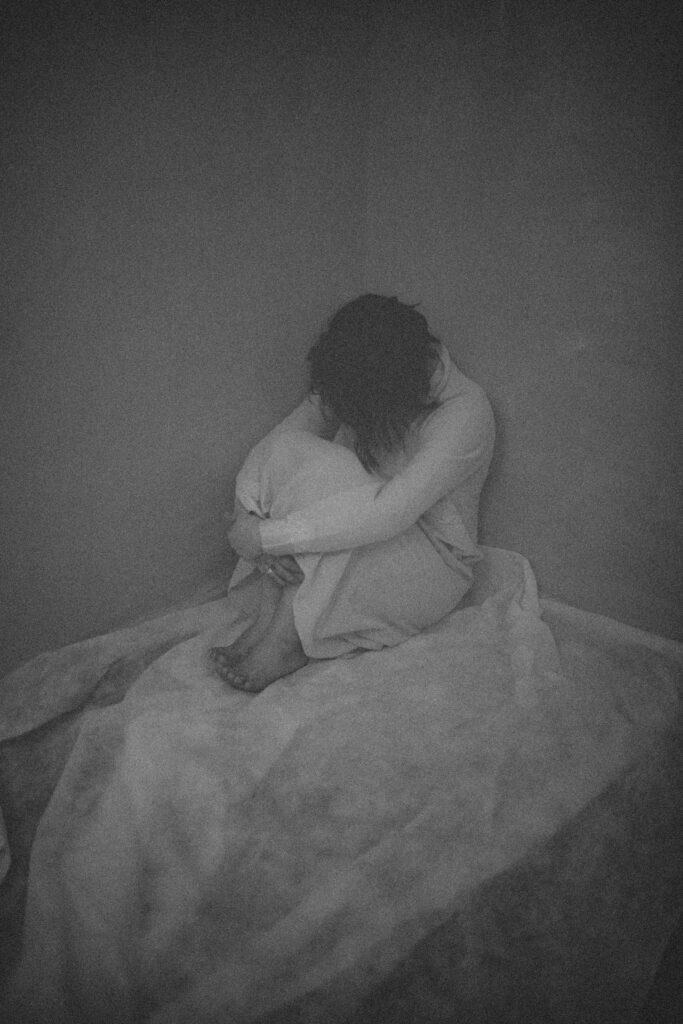Where Does Anxiety Come From?
 A certain amount of anxiety is a normal part of everyday human experience. Anxiety reaches a clinical level of concern when it becomes increasingly intrusive in a person’s life and starts to dominate their thoughts. Feelings of worry, obsessiveness, rumination, and preoccupation that are making it difficult to fall asleep and focus on tasks at hand reaching a level of interference that then becomes concerning. Some people experience muscle tension, headaches, loss of appetite, and can even culminate into panic attack symptoms of racing heart, chest pains, sweats, shakes, and nausea.
A certain amount of anxiety is a normal part of everyday human experience. Anxiety reaches a clinical level of concern when it becomes increasingly intrusive in a person’s life and starts to dominate their thoughts. Feelings of worry, obsessiveness, rumination, and preoccupation that are making it difficult to fall asleep and focus on tasks at hand reaching a level of interference that then becomes concerning. Some people experience muscle tension, headaches, loss of appetite, and can even culminate into panic attack symptoms of racing heart, chest pains, sweats, shakes, and nausea.
The origin of anxiety problems is different for each person. Some common culprits for anxiety are worth mentioning. For some people there appears to be a strong genetic component. Despite a relatively happy and nontraumatic childhood they struggle with anxiety. For many their anxiety may stem from difficult life experiences such as low self-esteem and insecurities, bullying, or obvious traumatic events like assault, abuse, or life-threatening experiences such as car accidents or natural disasters.
What Are the Ways to Treat Anxiety?
Broadly speaking, most people treat anxiety with medication, counseling, or a combination of both. It can be important to first rule out any medical causes of anxiety. Visiting your primary care doctor will help run some quick assessments and labs to determine whether there may be a simple explanation for the anxiety. Biology always trumps psychology. Medication and therapy won’t stop anxiety if it comes from possible medical causes like thyroid disorder, diabetes, heart disease, respiratory problems, asthma, or drug abuse or withdrawal. Once these have been ruled out, then most healthcare providers will suggest medication and/or counseling.
Family doctors and psychiatrists can provide medication prescriptions to help treat anxiety. Often antidepressants are very effective in reducing symptoms of anxiety. In some instances, anxiety may be more situational, and certain medications can help on an as-needed basis. They may include Hydroxyzine or Propranolol which are not habit-forming, or they may suggest something more potent from the Benzodiazepine family like Xanax or Ativan.
Alternatively, or in addition to medication, many people are encouraged to seek counseling as a treatment for anxiety. They are often referred to psychologists, professional counselors, social workers, or marriage and family therapists. All these providers have specialized training and knowledge in treating anxiety. Most research will show that counseling tends to outperform medication over the long term. Cognitive Behavioral Therapy (CBT) in particular is enormously effective in treating anxiety.
How Does Counseling Help with Anxiety?
Typically, counseling approaches anxiety from a position of teaching clients both reactive tools and proactive tools. Reactive tools are intended to teach people how to cope with anxiety when it is actively going on and the goal is to mitigate or reduce the intensity and duration of the anxiety. Many of these tools teach you about the physiological chain reaction occurring in the body and ways to disrupt this chain reaction and return the body to a relaxed state. Tools may include breathing techniques, relaxation exercises, guided imagery, and meditation.
Proactive tools are intended to help prevent anxiety from manifesting in the first place. Often there will be some degree of exploration, tracking, and mapping of possible sources and triggers for anxiety which are specific to each person. These may be specific events in the past or present that may need resolving. Often there is extensive work done to examine the person’s perceptions, interpretations, and inner dialogue. The meanings people attach to events often dictate their reactions and resulting anxiety. By learning how to change cognitive conclusions and beliefs many people discover that their own thinking is their worst enemy. By making modifications in how we see and interpret things can reduce or eliminate much of the anxiety people experience.
If you are interested in tackling your anxiety and improving your well-being, feel free to contact IPC so you can schedule an appointment with one of our providers for a more thorough assessment. Please call us now at 763-416-4167, or request an appointment on our website: WWW.IPC-MN.COM so we can sit down with you and complete a thorough assessment and help you develop a plan of action that will work for you. Life is too short to be unhappy. Find the peace of mind you deserve.
To get more great resources, sign up for our newsletter, like us on Face Book, or follow us on Twitter.
Innovative Psychological Consultants
Peace of Mind You Deserve
Schedule An Appointment
"*" indicates required fields


